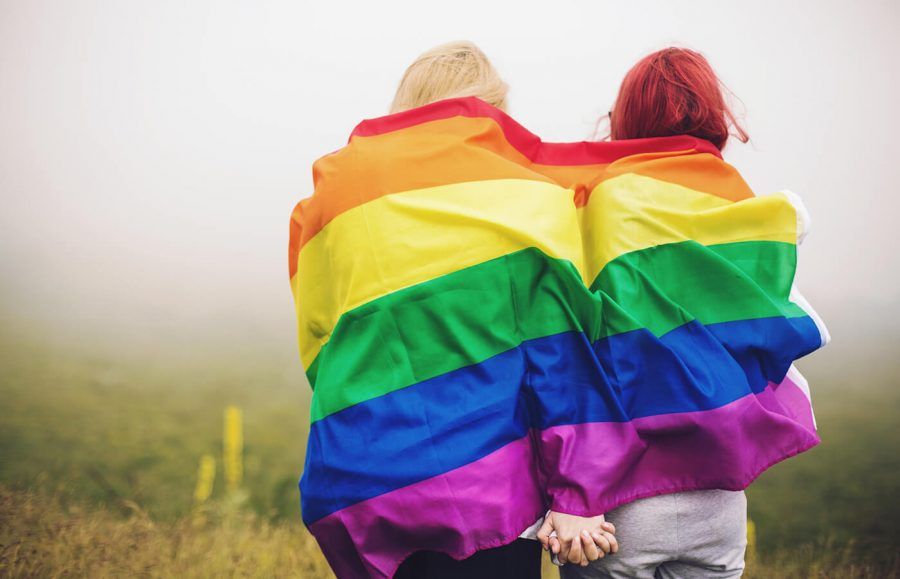In this article:
Methodology: Experian surveyed 429 self-identified LGBTQ+ consumers on May 30, 2024. Topics included saving and spending habits as well as financial discrimination they may have experienced.The sample was collected using a third-party company and was not from Experian's consumer credit database.
The LGBTQ+ community continues to face unique societal and financial challenges that can hinder achieving their goals compared with the non-LGBTQ+ population.
To better understand the financial standing and challenges of the LGBTQ+ community, Experian surveyed U.S. consumers about saving and spending habits as well as what discrimination they have experienced.
The LGBTQ+ Community Continues to Face Discrimination
More than half of respondents (67%) said they experienced discrimination because of their status as members of the LGBTQ+ community—an 8% increase from Experian's 2023 survey, which asked the same question.
While there have been strides made in financial inclusion, it appears as though there's still a long way to go. For example, members of the LGBTQ+ community continue to face discrimination at work that can lead to being passed over for a job, promotion or raise—all of which can hinder their earnings and savings compared with their peers.
Question: Have you personally experienced any of the following because of your status as a member of the LGBTQ+ community?
More LGBTQ+ Consumers Are Saving Enough Compared With Last Year
When we asked survey respondents how they felt about their savings, slightly more (39%) said they're saving enough compared with last year's survey (30%).
Some reasons why savings can be lacking for members of the LGBTQ+ community range from discrimination hindering their earning potential to a lack of familial support since they are more likely to have strained relationships with their family and less likely to have kids, according to U.S. Census Bureau data.
Question: Thinking about your savings, do you feel you're …
Majority of Younger Respondents Say They Struggle With Overspending
The majority of LGBTQ+ respondents (53%) said they have spending habits they'd like to improve. That's down from 65% of respondents last year. Dining out, hobbies and clothing continue to be the top three categories in which they were most likely to overspend.
Displeasure with spending habits was the most prevalent among younger LGBTQ+ community members, ages 18 to 24 (55%) and 25 to 34 (62%). The top three things those age groups said they overspend on are the same as the larger group: dining out, clothing and hobbies.
Do you agree with this statement: "I have bad spending habits that I need to improve or change"?
LGBTQ+ Respondents Have More Credit Cards in Their Name vs. Last Year
When we asked LGBTQ+ respondents how many credit card accounts they had in their name, the results were comparable to last year.
- 47% of respondents had just one or two credit cards in their name, which is a slight decrease compared with 50% last year. The overall average among Americans is 3.9 credit cards.
- 33% of LGBTQ+ respondents had three or more credit cards, which is a slight uptick from 30% last year.
- 21% cited not having any credit cards in their name, which remains consistent with last year.
Question: How many credit card accounts are in your name?
Most Know Their Credit Score
The majority of respondents (84%) know their credit score, which is a key part of measuring financial health. After all, having a good credit score can help you secure competitive financing offers, good insurance rates and even help you rent an apartment.
Question: Do you know your credit score?
Learn more >> What Is the Average Credit Score in the US?
The Bottom Line
While members of the LGBTQ+ community continue to experience financial discrimination, organizations such as the ACLU provide resources and advocate for LGBTQ+ rights. There are also various financial resources for the LGBTQ+ community that range from inclusive banks and scholarships to real estate professionals and family-building grants that can help the community strengthen their finances and work toward reaching their future goals.
More LGBTQ+ Financial Resources
- Buying a Home: What LGBTQ+ Couples Need to Consider
Homebuying is stressful for anyone, and LGBTQ+ couples often face some additional challenges. But with knowledge and preparation, they can be overcome. - 7 Financial Tips for LGBTQ+ Newlyweds
Despite progress with marriage equality, LGBTQ+ couples still face significant barriers. Here are several important financial tips for LGBTQ newlyweds.

